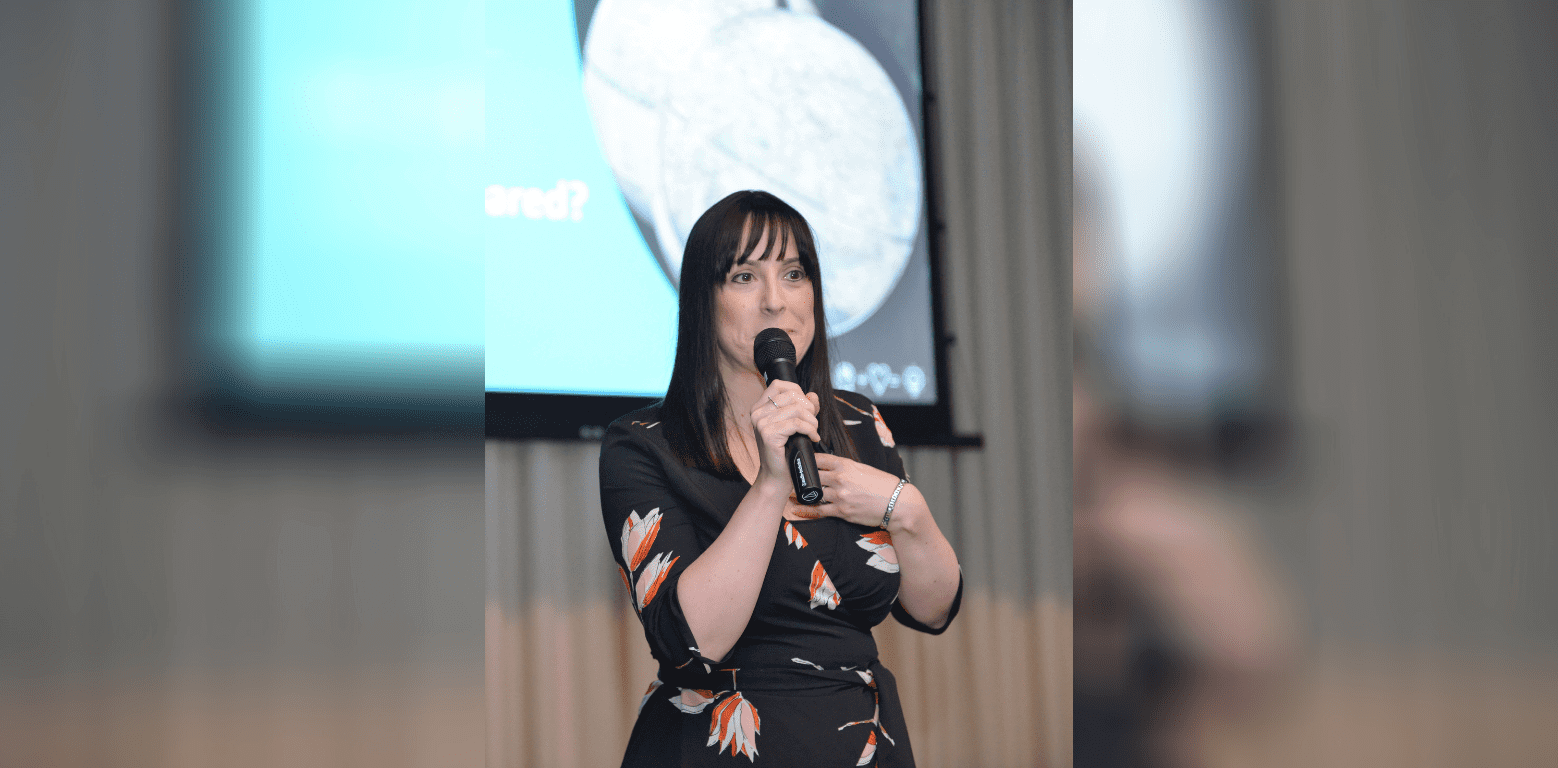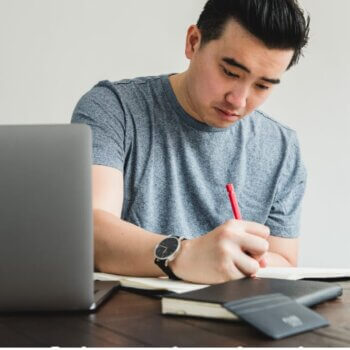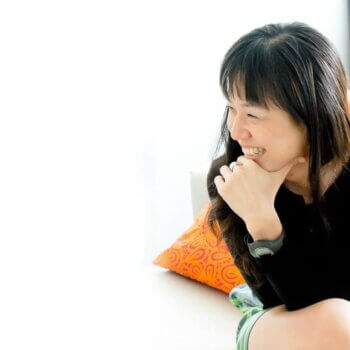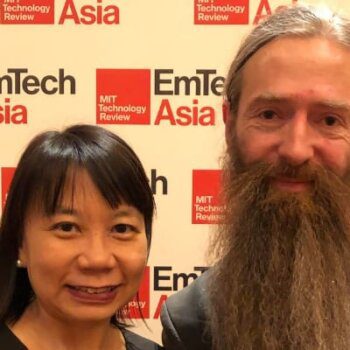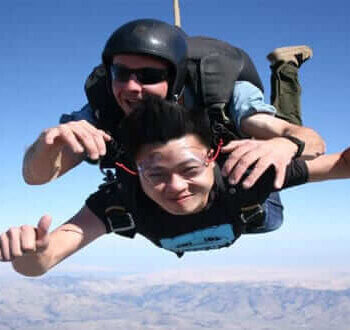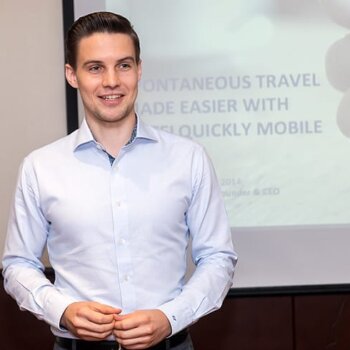Sarah Whyte Teaches People How To Compassionately Adapt And Cope With Changes And Challenges.
What’s your story?
I started my career as a primary school teacher! I moved to Singapore to teach, then completed my doctorate in emotional intelligence. That led me to setting up my own business as a speaker, facilitator, consultant and coach focusing on emotional wellbeing and resilience.

What excites you most about your industry?
It’s so exciting to see organisations realising the vital role of emotional wellbeing and resilience in business. We know that wellbeing drives business performance and results; it fosters innovation and creativity and it helps people adapt well to change (currently more essential now than it’s ever been!). That’s a big shift from the way people previously thought about wellbeing and resilience as simply a ‘nice thing to have’. It’s exciting to see organisations starting to develop more rounded wellbeing programs with a broader focus on organisational and employee wellbeing, rather than solely considering physical wellness.
What is your connection to Asia?
Originally, I moved to Singapore from the UK for 2 years. However, 12 years later, I’m still here and still thoroughly enjoying Singapore as my home.
Favourite city in Asia for business and why?
I’ve always enjoyed facilitating workshops in Manila. I’ve consistently had a warm welcome from very engaged and enthusiastic participants, who are committed to actioning their learning.
What’s the best piece of advice you ever received?
“Nothing is ever wasted” This means that everything we do, everything we learn and everything we experience is useful in some way in the future. This advice is particularly helpful for me when things haven’t gone according to what I had planned. It helps me to reframe unexpected events or something I might view as a mistake as a learning experience which will benefit me at some point in the future.
Who inspires you?
Brené Brown is an inspiration. I respect the way she walks the walk when it comes to her work on vulnerability. She’s made her research very accessible and relatable. As a recovering perfectionist myself, I found her TED talks and books extremely helpful in realising the value of embracing my own imperfection and vulnerability.
What have you just learnt recently that blew you away?
I learned more about the concept of toxic positivity and how damaging it can be. Toxic positivity is the assumption that regardless of your situation or the emotional pain you are experiencing, you should only have a positive mindset. Toxic positivity is damaging because it encourages us to view negative emotions as inherently bad, which minimises or even invalidates the emotional experience we have as people. By trying to ignore those negative emotions, you are actually more likely to think about them, and suppressing uncomfortable feelings can cause increased anxiety and depression and worse mental health overall.
If you had your time again, what would you do differently?
I wouldn’t do anything differently! Everything I’ve done, whether it’s worked out well or been a mistake, has made me who I am and helped me get to the place I’m in now. I’ve learned and grown from my mistakes, and my successes have motivated me and driven me forward.
How do you unwind?
I have a small child who is like a mini tornado at home, so I have to grab my chance to unwind when I can! Reading is my go-to for unwinding. I love to read anything from light-hearted chick lit to more academic or business-focused books.

Favourite Asian destination for relaxation? Why?
It has to be Bali. There’s so much to enjoy – it’s a short flight from Singapore, the accommodation options are amazing and it’s so nice to chill out in one of the many beach bars. My favourite part of a Bali trip has to be the sensational food, especially at restaurants like Metis, which are consistently awesome.
Everyone in business should read this book:
Emotional Agility by Susan David, Ph.D. In the book, Susan David shares how emotional agility allows people to gain vital insight about stressful situations and interactions from their feelings. She explains how we can use this knowledge to adapt, align our values and actions, and make changes to bring the best of themselves forward.
Shameless plug for your business:
I’m passionate about equipping people with simple, practical yet powerful tools to build their own emotional wellbeing and resilience. Through my work, people learn how to compassionately adapt and cope with changes and challenges, as well as the simple steps they can take to flourish and thrive at work and at home. My work draws on proven, science-backed methods and I focus on creating engaging and interactive learning experiences to ensure maximum impact when people return to their desks and their homes.
How can people connect with you?
Through my website www.sarahwhyte.com.sg or any of my social media links.
Social Media Links?
LinkedIn www.linkedin.com/in/sarahwhyteconsulting
Facebook www.facebook.com/sarahwhyteconsulting
Twitter https://twitter.com/sarahinsg
—
To hear how entrepreneurs around the world overcome their challenges, search your favourite podcast platform for ‘CallumConnects‘ to hear a 5-minute daily breakdown.

Callum Laing is an entrepreneur and investor based in Singapore. He has previously started, built, and sold half a dozen businesses and is now a Partner at Unity-Group Private Equity and Co-Founder and CEO of MBH Corporation PLC. He is the author of three best-selling books ‘Progressive Partnerships’, ‘Agglomerate’, and ‘Entrepreneurial Investing’.
Connect with Callum on Twitter and LinkedIn
Download free copies of his books at www.callumlaing.com
